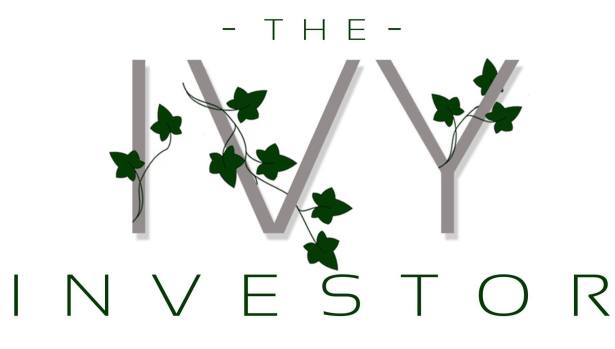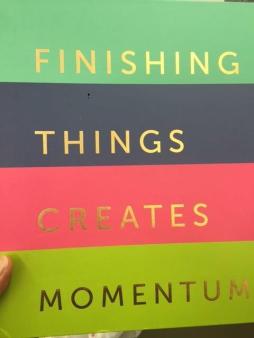The top of most individual’s New Year’s resolutions includes, “Get out of debt” and “Save Money.” There’s good news and bad news. First, the bad news, 90% of New Year’s Resolutions fail. Here is the good news! Your New Year’s Resolution to get out of debt and save money does not have to fail!
Addressing why resolutions are commonly unsuccessful is a great way to check yourself. One reason is that people often set their goals too high and quickly become overwhelmed. Another reason is fear—fear of change, fear of failure, and even fear of success. Now that that’s out of the way, let’s talk.
Changing your financial habits will take you out of your comfort zone. We need to be honest with each other to make this change work. So let’s be real…You have some comfort in your situation, or you’d be propelled to stop doing it. The good thing is that there is something unpleasant about your current state, because it found its way to your New Year’s Resolution list. Remember, you did not get into debt overnight; so coming out of it will not happen overnight.
Now, step away from every Visa, MasterCard, AMEX, Discover, and store credit card you own. Some people suggest placing them in a plastic bag with water and freezing them. I couldn’t stomach looking at all my beautiful, shiny cards wrapped up in ice so I just took them out of my wallet. You have to do what works for you! Why do you need to get rid of your access to credit cards? It’s hard, if not impossible, to pay debt down by using the same things that caused your debt. You have to change your thinking—control your debt, control your life. I told you this process will take you out of your comfort zone.
How can you get out of debt?
- Assess your current financial situation.
- Save $1,000.00 as quickly as possible.
- Make a debt payoff plan.
- Work your debt payoff plan.
- Save and invest.
Step One: Assess your current financial situation.
Before creating your debt payoff plan, you need to know exactly where you stand. When I did this for the first time last year, my first thought was, I have to somehow manage THAT?! I wanted to hop in my bed, pull the covers all the way OVER my head and let my automatic bill pay continue without another thought. Something similar to this did happen. After looking at my situation, which included a house worth of student loan debt, I pouted and completely ignored it for a few days. I did, eventually, get it together but I didn’t stop pouting, I just grudgingly moved to the next step.
How do you assess your current financial situation? I suggest using a three ring binder or a composition book to keep all your information together.
First: List your debt. Worksheet #1 This information will be extremely useful later in the process. Remember to take account of all of your debt, not just what you consider “problematic,” such as high interest credit cards. Include your mortgage and car. Your creditor’s website can help with all this information (i.e. looking at statements) but do not hesitate to call the creditor if any of the information is not readily available. Creditors must provide this information upon request.
Second: Pull your credit report from the three major bureaus-Transunion, Experian, and Equifax- for FREE from www.annualcreditreport.com. (Using any other site will eventually charge you.) You are entitled to one free credit report every 12 months, and using the new year as a gauge works well.
Third: Calculate your net worth. Worksheet #2
Here’s the fun part: subtract assets from liabilities. If your assets are larger than your liabilities, you have a positive net worth. If your liabilities are larger than your assets, you have a negative net worth. Don’t worry if you have a negative net worth. It is fixable!
Fourth: List your monthly expenses. Worksheet #3
You need to know what you have coming in and out each month. This is so important in the creation of a reasonable debt management program because it keeps your payments manageable. As a way to manage your monthly expenses, you might want to convert to using cash only. Swiping your debit card instead of paying with cash can become mindless, making it harder to keep track of what’s going out of your pocket.
Step Two: Save $1,000 as quickly as possible.
While you are getting your finances together, the last thing you want to do is borrow money to get out of a financial jam. Most financial jams are reasonably accommodated with $1,000. I do caution you, however, if you get into a dilemma where you have to use some or all of your cushion, stop debt payoff until you get the $1,000 back into your account.
Some things to consider to quickly get $1,000: Can you stop eating out for a few months, or limit it to once a month? Would you consider getting a second job? Can you sell some unwanted things? Look at your monthly expenses. Is there anything you could cut out?
Step Three: Make a debt payoff plan.
We have to be SMART about debt payoff. Make it:
Specific
Measureable
Attainable
Realistic
Timely
For example, to say, “I plan to pay off all my debt,” is great. The plan is attainable and realistic; but it is not specific enough; it is not measurable; and it is not timely. Refer to your worksheets from Step One: Assess Your Current Financial situation. How much debt do you have? As you look at your monthly expenses, how much can you afford to pay per month? During Step Four, were you able to eliminate unnecessary expenses? If so, how did that increase your available cash? Now that you’ve analyzed your cash flow, how much can you afford to pay monthly towards debt elimination? A note about debt elimination, I advocate paying off all consumer debt and leaving student loan debt alone for now. Why? Thankfully, there are many options available for loan repayment and forgiveness.
Step Four: Work your debt payoff plan.
Now that we have planned our work, we must work our plan! Set a large, yet attainable goal. For instance, “ I will pay off all my [consumer] debt by February 2015.” Go back to step 1, and order your debt by the smallest amount to the largest amount. Determine a schedule for paying off your smallest debt. For example, “My goal is to use $195 per pay to pay off credit card #1 in full by April 1, 2014.” After your smallest debt is paid off cross it off and move on to the next debt. Continue this process until all your debt is paid off.
You might ask, “Why not pay a little money on each debt until everything is paid off?” Because there’s power in completion! I cannot wait to hear from you when you tell me you paid your first debt off. You will feel a weight lifted and you will have momentum to get rid of your next item of debt.
Step Five: Save and invest.
I will cover the basics of saving and investing in another post.
Final Thoughts:
This is a lot of work, but I can assure you it is worth it. I know there are online programs that will help you figure your financial situation out with a little data entry. But I caution against that process. Why? Because I firmly believe in the power of the pen and pad—physically writing your debts out, seeing your situation in black and white in your own handwriting, and the ability to cross things out when they are completed. I want you to change your thinking and be the captain of your finances! It can be done; you can do it!


